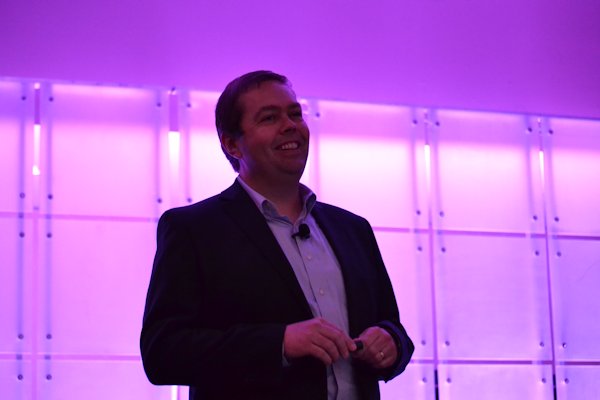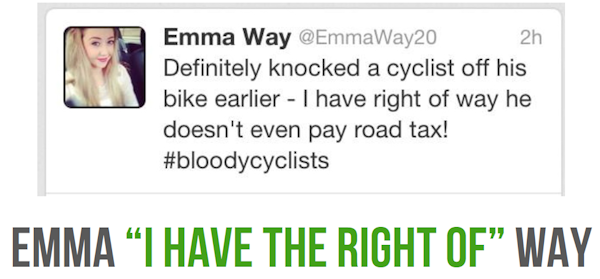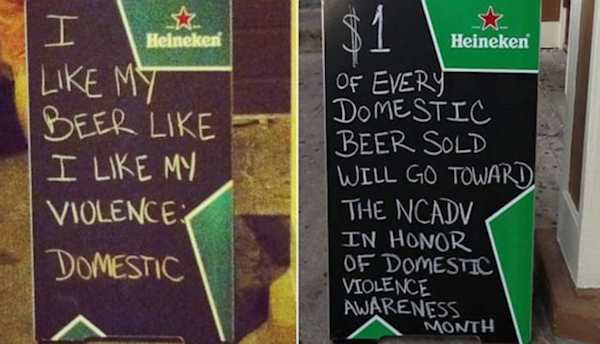
Not even the world’s biggest brands are immune from reputation disasters. But there is hope for all of us.
Reputation management expert Andy Beal, chief executive (CEO) of Trackur and author of Repped: 30 Days to a Better Online Reputation, kicked off day two of ClickZ Live New York by sharing 15 examples of reputation disasters, and what we can learn from these mistakes.
What Is Online Reputation Management
In a nutshell, Beal defined online reputation management as “an effort to increase the number of positive Internet discussions, while limiting the damage of any negative ones.” It is a proactive effort to improve your reputation.
Why is this important?
- Eighty-three percent of businesses in next five years will suffer an attack that will devalue their business by 20 to 30 percent.
- Eighty-seven percent of consumers tie the reputation of the CEO to reputation of the company. If you’re the leader of your company, what you do reflects on your company’s reputations.
- Ninety-seven percent of consumers do online research when making purchasing decisions, so what they find could impact your bottom line, either positively or negatively.
15 ‘OMG’ Moments and Lessons in Reputation Management
1. You Only Have One Reputation
Beal began by discussing Phil Robertson from the A&E series Duck Dynasty, who made some controversial homophobic comments in a personal interview. While he made those comments as Phil Robertson, he didn’t realize those would become the stance of Duck Dynasty, Duck Commander, his sons, and A&E.
There is no personal vs. corporate rep. Beal said this was similar to when the CEO of Chick-fil-A made controversial comments about gay marriage.
“You can’t segment your personal reputation from corporate. They bind together,” Beal said. “Whatever you say, people will apply it to your company.”
2. What Happens Offline Makes It Online
Politician Cory Booker flirted with reputation disaster, quite literally, as he got caught flirting with a stripper named Lynsie Lee via tweets. Beal said there is no distinguishing between offline and online.
“The two are going to merge,” he said. “Your offline and online are the same.”
3. You Can’t Hide Your True Character
Beal gave the example of Paula Deen, who suffered a reputation disaster when her use of the N-word became mainstream news. Beal said brands and businesses must deal with the underlying character rather than trying to sweep one problem after another under the rug.
“A lot of this gets solved by how you do business,” Beal said. “Fix that and a great reputation will follow.”
4. Just Because You Can Brag Doesn’t Mean You Should

Beal brought up an infamous tweet from Emma Way, who tweeted about hitting a cyclist on Twitter. All it takes is one popular person to hit the retweet button and it will jump out of your private network. Self-censor.
5. You Are Always Being Judged
Former presidential candidate Mitt Romney got his campaign in trouble when someone recorded him dissing half the country (the “takers”). Beal warns there is no “off the record”.
“Behave yourself at all times,” Beal said. “It will potentially create an issue.”
6. Train Your Staff
Then there’s this, from Minibar in Austin, Texas:

How do you avoid this? Let your employees know your reputation plans. Tell them your goals and what you’re trying to achieve, because they are an extension of your brand.
Your views do reflect on your employer, Beal said. The caveat “the views are mine and not of my employer” doesn’t protect you.
7. Whatever You Tweet Represents Your Employer
Beal brought up the Pax Dickinson tweet about feminism in tech and the Justine Sacco AIDS “joke” tweet as two examples of tweets that reflect badly on your brand – and will also get you fired.
“Be careful of your actions,” Beal said. “Everything you tweet or post is a reflection on your employer.”
8. Use the Right Account
When the Family Feud Twitter account posted a very political statement, people took notice. Family Feud said they were hacked, but Beal suspects that someone simply logged into the wrong Twitter account, which is easy to do if you use tools like HootSuite or TweetDeck.

“Hire the right people,” Beal said. “Make sure they’re not the type of person who goes on a political rant or posts something obscene or offensive. It’s not OK. It still has an influence on your business.”
9. Know Your Audience
Beal cited the example of Pearl Izumi, which created an ad where a runner was giving CPR to a dog. It created a huge uproar from animal lovers who complained on their Facebook page and offended their own customers.
“Just because you think your audience might like it, you must think about what others will think,” he said, also referencing the recent Stephen Colbert issue, where an inside joke from the show which mocked the racism of the Washington Redskins, but to outsiders who saw it on Twitter, it just looked highly offensive to Asians.
10. Be Present
A frustrated British Airways customer took to Twitter to vent his frustration via a Promoted Tweet. British Airways, a global airline that runs 24-7, eventually responded by saying they shut it down after 5 o’clock.
“You can’t be online 24-7. [But] you can use social media monitoring tools so at least somebody is monitoring what’s being said.”
Beal said it’s smart to put people on call to monitor social media mentions, and contact the necessary people should any issues arrive during off hours.
11. Don’t Automate Engagement
Tesco was in the midst of a controversy over using horse meat in its burgers and was fighting reputation fires all day, but forgot something important: they sent out a regularly scheduled tweet at the end of the day: “It’s sleepy time so we’re off to hit the hay!”
“It’s OK to automate some stuff, but you need to pay attention to those scheduled tweets and posts,” Beal said.
If you’re in the middle of a crisis, the first thing you should do is review what’s scheduled to go out. If there is an earthquake or some other event, you must make sure you don’t put out a tweet that’s insensitive.
12. Greed Is Ugly
Don’t do boneheaded things on somber occasions. Spaghetti-O’s got itself in trouble tweeting a cartoon “O” waving a flag in “honor” of Pearl Harbor, while a Marriott Hotel offered free coffee and muffins from 8:45 to 9:15 on the anniversary of the 9/11 terrorist attacks.
“Don’t feel like you have to capitalize on every event,” Beal said. “If it’s a natural tweet, sure. If not, no need to tie in your brand.”
13. Don’t Talk Trash
Samsung got fined for hiring people to write fake positive reviews of its own products and negative reviews of competitor HTC. Beal said there is no reason to trash your competitors – it looks ugly, and your competitor could launch an attack trashing your rep.
The better way to go is focusing on the good stuff you offer. Know your client’s weaknesses, and focus on why someone should buy your product vs. someone else.
14. You Can’t Cover Up Nasty
Healthcare.gov didn’t have the best launch, and still has issues to this day. It’s a good reminder not to cut corners or push something out that is “half-baked”. It’s harder to manage your reputation after you’ve given a bad initial impression.
“If you have amazing products, put in effort to build great service, you’ll build a great rep,” Beal said.
15. Big Lies Are Eventually Revealed
Many companies want to cover things up. But it’s kind of like an athlete doing steroids (hello, Lance Armstrong). At some point they eventually just get caught.
Which Brands Are Managing Their Reputation Well?
A recent fare glitch gave some United Airlines consumers round-trip tickets for very cheap. While probably only dozens got the fare, United honored it. It wasn’t a huge financial burden, and United likely though denying the fares could cause issues, such as lost future business.
Beal also said Kmart’s #shipmypants was an example of amazing content. It’s a good reminder to create a campaign that’s unexpected, something that gets attention, whether it’s a video or animation.
One brand that won Beal over personally was Mattress Firm, when he was looking for a new bed. He read several negative reviews and tried that store last.
But a super helpful salesman worked with him, as Beal tried and returned two mattresses before finding his ideal bed. This salesman single-handedly turned around Beal’s negative perception of the brand, and Beal noted that “a single employee can make a big difference to your rep.”
Another brand that won over Beal was Sola Coffee in Raleigh, North Carolina. It was a busy day, but the manager made the effort to tell Beal they would get someone to take care of him. After finding out Beal had found them through Facebook, the manager gave him a maple syrup latte, and the entire experience has kept Beal a loyal customer.
Summary
It’s hard to maintain a good reputation. You have to work hard at it, Beal said. Examine everything and learn from the mistakes of others.
“Whether you do it yourself or hire someone, keep focus on building reputation,” Beal said. “If you have good rep, everything else will fall into place.”
This article was originally published on ClickZ.



